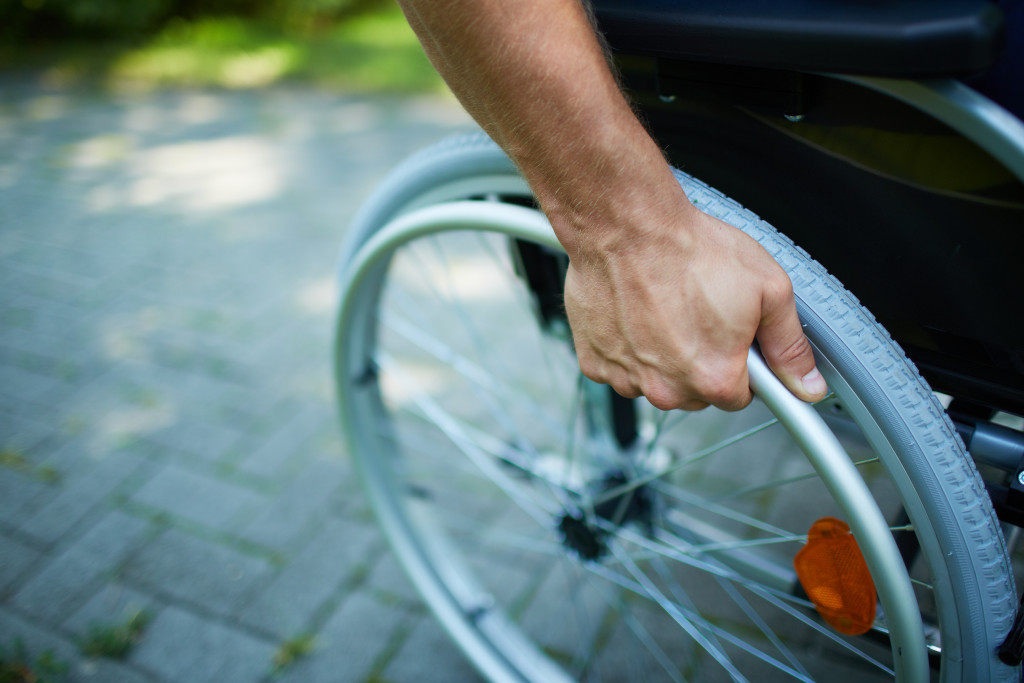- Understanding your legal rights as a person with a disability is crucial for self-advocacy and empowerment.
- Building a strong support network and seeking professional assistance can provide both practical help and emotional support.
- Skills training can foster self-reliance and open employment opportunities, while community resources offer invaluable services and support.
- Your disability does not limit your potential, and by utilizing available tools, resources, and support, you can lead an independent, fulfilling life.
Living independently with a disability might seem daunting, but it’s achievable. Empowering yourself begins with understanding your rights, utilizing available resources, and maintaining a strong support network. Numerous strategies, resources, and technological advancements at your disposal can assist you in leading an autonomous and fulfilling life. Explore some of the best ways to facilitate independence and empowerment.
Understand Your Legal Rights
As a person with a disability, you must familiarize yourself with the legal protections you are afforded. These laws are designed to promote equal opportunities, prohibit discrimination, and ensure the provision of reasonable accommodations in various facets of life including education, employment, and housing.
The Americans with Disabilities Act (ADA), for instance, provides extensive rights and protections. Furthermore, the Fair Housing Act safeguards against discrimination in housing, and Section 504 of the Rehabilitation Act protects against discrimination in federally funded programs.
Becoming well-versed with these laws can help you assert your rights and take appropriate action in instances of discrimination. Understanding your legal rights is the first step towards empowerment and self-advocacy. Here are more tips to help you out:
Leverage Assistive Technologies

Assistive technologies have revolutionized how individuals with disabilities navigate the world, promoting independence and facilitating daily tasks. They encompass various tools, gadgets, and software designed to improve functional capabilities. For instance, screen readers and text-to-speech software make digital content accessible to those with visual impairments, while mobility aids like power wheelchairs and scooters enhance physical movement.
Similarly, smart home technologies enable individuals to control various household appliances and systems via voice commands or apps, eliminating physical interaction. Learning about and taking advantage of these technologies can significantly enhance your quality of life.
Many organizations and online platforms provide comprehensive information on the latest assistive technologies, their functions, and how to use them. By identifying technologies that cater to your specific needs, you can take a big step towards living independently and confidently.
Building a Support Network
Building a strong support network is vital in fostering independence and resilience among individuals with disabilities. A robust support network can comprise family, friends, healthcare providers, support groups, and disability-specific organizations. These pillars of support can provide emotional encouragement, and practical assistance, and share valuable experiences and insights.
Interacting with others who have similar experiences can alleviate feelings of isolation and provide a sense of solidarity and understanding. Networking platforms and online communities also provide an excellent opportunity to connect with a wider, global audience, facilitating the exchange of ideas and strategies to overcome daily challenges.
Regular interactions with your support network can boost your self-esteem and confidence, empowering you to lead a fulfilling life. Remember, seeking support is not a sign of weakness–it’s essential to personal growth and resilience.
Seek Professional Assistance

Professional assistance can provide expert guidance on various aspects of disability management and independent living. This may include therapists, social workers, counselors, or disability advocates. They can help you understand and navigate the legal, emotional, and practical challenges associated with your disability, and devise strategies to overcome them.
For instance, an occupational therapist can suggest modifications to your home or workplace to accommodate your needs, while a counselor or psychologist can provide emotional support and coping strategies. A disability advocate can guide you through asserting your rights and accessing necessary accommodations.
Contact local health and disability organizations or use digital platforms to find professionals who specialize in dealing with your specific disability. Seeking professional assistance is not an admission of defeat, but a proactive step towards living an independent, empowered life.
Skills Training
Skills training is invaluable for individuals with disabilities aspiring to live independently. It entails acquiring practical skills to perform daily tasks, from personal care and housekeeping to budgeting and time management. Vocational training can also provide employment opportunities, equipping you with job-specific skills and competencies.
In addition, adaptability and problem-solving skills are key to navigating various life situations with resilience. Exploring local community centers, vocational schools, or online platforms offering relevant training programs is worthwhile. Remember, every skill learned enhances your self-reliance and confidence, propelling you further toward independence.
Take Advantage of Community Resources
Community resources offer many services and support for individuals with disabilities striving for independence. These may include local disability organizations, social services, recreational clubs, educational resources, transportation services, etc. They can provide invaluable guidance, assistance, and opportunities to enrich your life and facilitate autonomy.
For example, accessible public transportation services can foster mobility, while educational resources and workshops can empower you with knowledge and skills. Participating in local recreational or social clubs fosters engagement and connection within the community.
Disability-specific organizations offer tailored services and support, from assistive technology to advocacy. Exploring these resources can uncover opportunities and services you may not have been aware of. Remember, your local community is a remarkable source of support and empowerment. The more you tap into these existing resources, the smoother your journey toward independence and self-fulfillment becomes.
Explore SDA Housing Options
Specialist Disability Accommodation (SDA) housing options offer customized living solutions designed to cater to the unique needs of individuals with disabilities. These residences have features that enhance accessibility, mobility, and safety.
Whether it’s modified kitchen facilities for wheelchair users, sensory spaces for people with autism, or secure fencing for those with cognitive disabilities, SDA housing prioritizes the comfort and independence of its residents.
Additionally, many SDA homes are located within communities offering easy access to healthcare, transportation, and recreational facilities. While transitioning to SDA housing may require some adjustment, it’s a significant step toward leading an autonomous life. You can find a living arrangement that best aligns with your lifestyle and needs by exploring the various SDA housing options available.
Embrace your journey towards independence and empowerment with open arms. Utilize the tools, resources, and support at your disposal. Remember, your disability does not define you or your potential. Now, harness these strategies to create the fulfilling, autonomous life you deserve!

